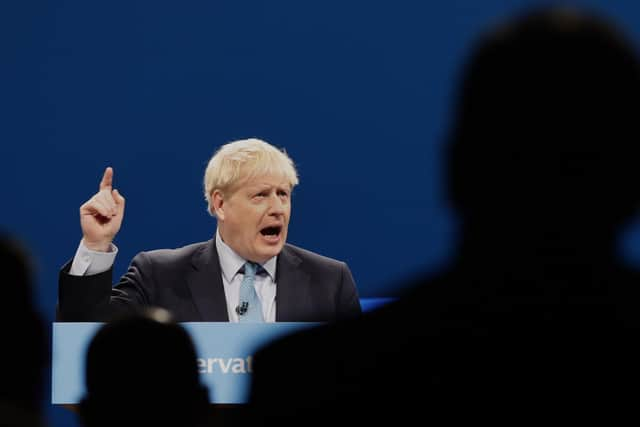Should Nicola Sturgeon hold a fresh independence referendum without UK Government agreement?


BORIS Johnson’s blunt refusal of a second independence referendum has sparked renewed speculation over whether the SNP might decide to go ahead and hold an unofficial vote in bid to force the issue.
Former cabinet minister Alex Neil backs the idea and says even if the pro-UK parties organised a boycott of such a ballot, it would not make any difference.
Advertisement
Hide AdAdvertisement
Hide AdHe said at the weekend: “The political reality is, if you run a legal, consultative referendum, and the result was in favour of independence, the game’s a bogey for the Union, because the political reality is – that’s it.”


Constitutional law expert Aidan O’Neill QC produced a legal opinion for the pro-independence campaign group Forward As One last week, arguing such a referendum would be within the powers of the Scottish Parliament - but added his conclusion would need to be tested in court.
Nicola Sturgeon, however, has so far insisted she will not go down the road of calling a “wildcat” plebiscite, preferring instead to continue pressing for the official transfer of power from Westminster to allow Holyrood to hold a referendum, as happened in 2014.
In the wake December’s election result, she sent her latest official request to Boris Johnson before Christmas. Significantly, it did not just ask for a Section 30 order, as in 2014, allowing a referendum within a certain time, but argued for the permanent transfer to Holyrood of the power to call a referendum at a time of its own choosing.
Advertisement
Hide AdAdvertisement
Hide AdAnd whereas Theresa May’s answer to Ms Sturgeon’s last request was the endless repetition of “Now is not the time”, Mr Johnson’s answer seems to be a more definite “Never”.
Ms Sturgeon sent the Prime Minister a 38-page document setting out her detailed case for Scotland’s right to decide its own future, explaining why the UK is “best understood as a voluntary association of nations”, why ministers believe they have a mandate to hold another referendum, spelling out the material change of circumstance that justifies a fresh vote and including draft legislation which could be taken forward.
In reply, Mr Johnson sent back a letter just 19 lines long, dismissing the request. He did not enter into any discussion of the case made by Ms Sturgeon.
Indeed his letter was not particularly prime ministerial in tone, amounting to little more than the anti-independence rhetoric he used in the election campaign.
Advertisement
Hide AdAdvertisement
Hide AdAnd he bluntly told the First Minister: “I cannot agree to any request for a transfer of power that would lead to further independence referendums.”
So that seems to be that - except, of course, the Prime Minister has been known to make grand statements and then do something different. His letter to Ms Sturgeon didn’t actually mention dying in a ditch, but it could have.
The 2021 Holyrood election will provide the test. If there is a pro-independence majority in the parliament, will Mr Johnson realise refusal of a referendum in “unsustainable” as many have said? Or will he show his pragmatic side and change his tune?
Opting to hold a referendum without a Section 30 could be fraught with problems and risk leading to even more division, splitting independence supporters as well as fuelling anti-independence outrage.
Advertisement
Hide AdAdvertisement
Hide AdAnd there would no doubt be legal challenges, allowing countless lawyers to pocket thousands of pounds for arguing the toss in court.
Ms Sturgeon is probably better advised to wait and see what the fickle Prime Minister does next.